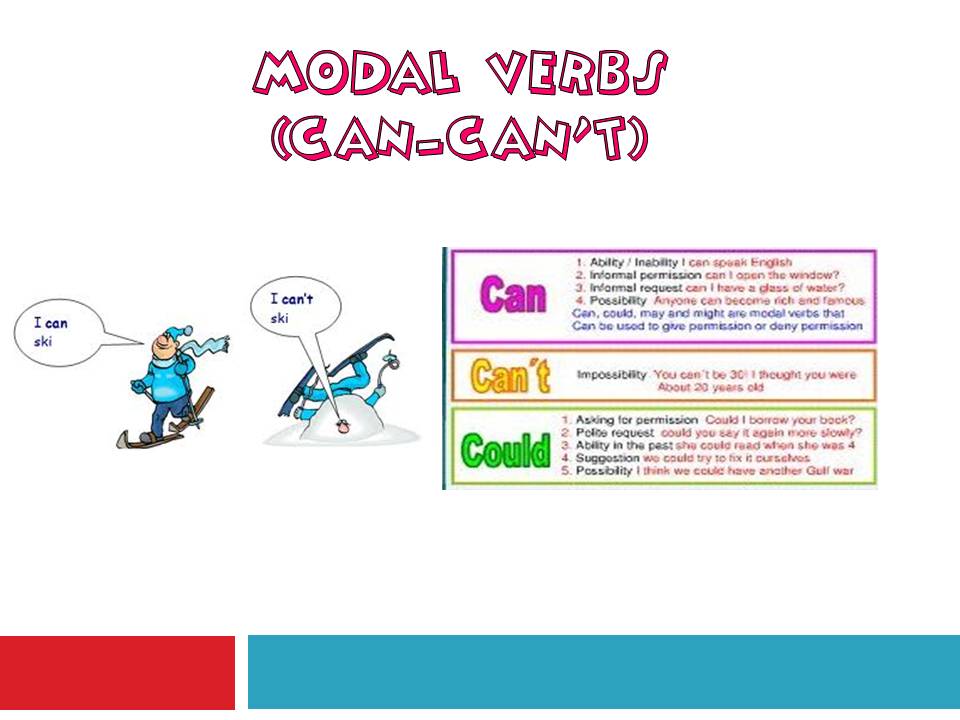
Can you speak English? Can I help make it easier for you? The questions I am asking are formed by using the modal verb “can”. It is a very important modal verb that is used all the time so I am going to show you how and when to use it correctly.
Parli inglese? Posso aiutarti a renderlo più semplice? Come puoi vedere queste domande si formano con il verbo modale “can”. Si tratta di un verbo modale molto importante e molto frequente, per cui ora ti spiegherò come usarlo correttamente.
Ready? Let’s go!
can is used for the following:
“Can” si usa nei seguenti casi:
– to talk about possibility or ability
Per esprimere possibilità e abilità
– to ask or give permission
Per chiedere o dare un permesso
– to make requests.
Per fare richieste.
To talk about ability or possibility, “can” is usually placed before the action verb. For example:
Per parlare di abilità e possibilità, “can” si colloca di solito prima del verbo dell’azione. Ad esempio:
• James is a good sportsman. He can play tennis, football and cricket very well. (ability)
James è un buon sportivo. Sa giocare a tennis, calcio e cricket molto bene. (capacità)
• Cathy can come to the party because she finishes work at 6. (possibility)
Cathy può venire alla festa perché finisce di lavorare alle 6. (possibilità)
To form questions asking for permission, “can” is placed at the beginning of the sentence.
Per formulare domande per chiedere permesso, “can” si colloca all’inizio della frase.
To give permission, “can” is placed after the subject.
Per dare il permesso invece “can” va dopo il soggetto.
• Can I go to Lucy’s party on Saturday night?
Posso andare alla festa di Lucy sabato sera?
• Can I smoke in this room?
Posso fumare in questa stanza?
• You can take my car to work if yours isn’t working.
Puoi prendere la mia macchina per andare al lavoro se la tua non funziona.
To form questions making requests, “can” is placed at the beginning of the sentence.
Per formulare delle richieste, “can” si posiziona all’inizio della frase.
Look at some examples:
• Can I have a coffee please?
Mi fa un caffè per favore?
• Can you please help me paint my house this afternoon?
Oggi pomeriggio mi puoi aiutare a dipingere casa mia per favore?
• Can you give me a lift to work?
Mi puoi dare un passaggio al lavoro?
For negatives we use “cannot” or the contraction “can’t”, for example:
Per le negazioni si usa “cannot” o la contrazione “can’t”, ad esempio:
• You can’t arrive late because it’s an important day.
Non puoi arrivare tardi perché è un giorno importante.
• The boys can’t go out tonight as they have not finished their homework.
I ragazzi stasera non possono uscire dato che non hanno finito i compiti.
• He cannot play in the match as he is injured. (“cannot” is usually more emphatic)
Lui non può giocare la partita perché è ferito. (“cannot” di solito è più enfatico)